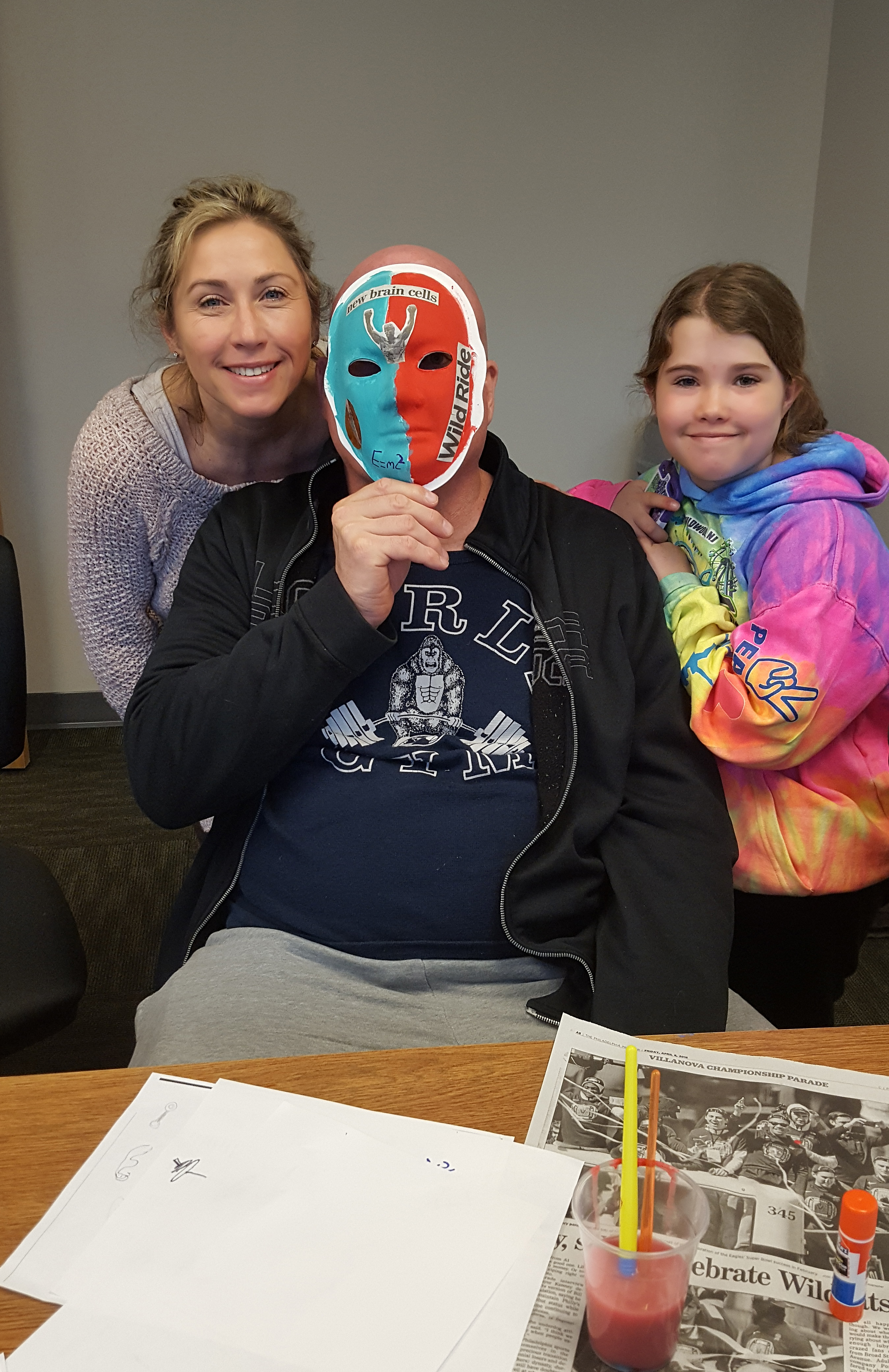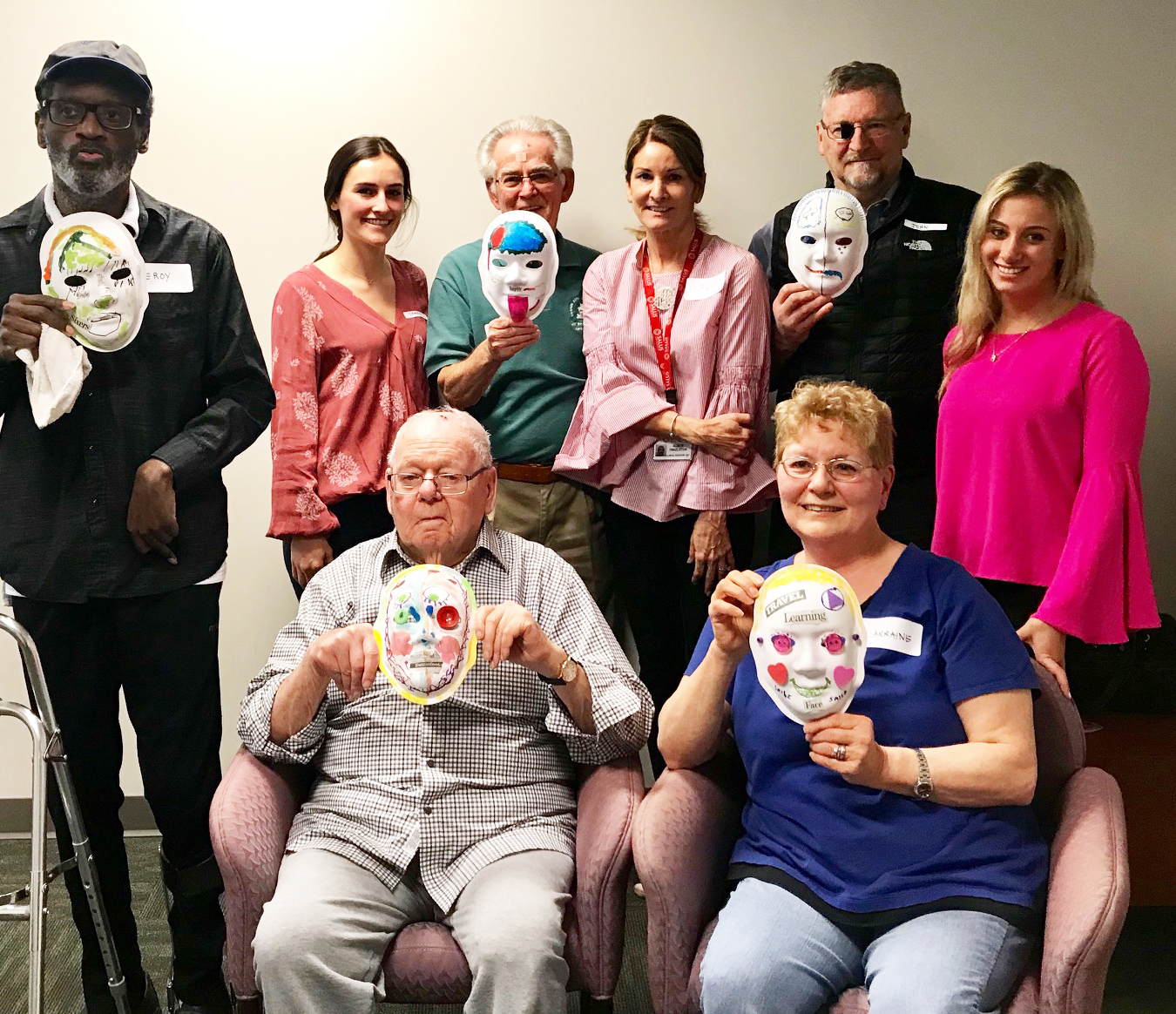
 Clients from the Speech-Language Institute (SLI) of Salus University put their creative skills to work all for a good cause – to raise awareness about the prevalence of brain injuries.
Clients from the Speech-Language Institute (SLI) of Salus University put their creative skills to work all for a good cause – to raise awareness about the prevalence of brain injuries.
According to the Centers for Disease Control (CDC), every year, more than 2.8 million people in the U.S. sustain a traumatic brain injury (TBI). TBIs are caused by an impact to the head that disrupts the normal function of the brain. Depending on its severity, it can lead to brain damage, disability and even death.
The Unmasking Brain Injury project was created to give survivors a voice and a means to educate others about what it’s like to live with a brain injury. The project also aims to serve as a creative outlet for brain injury survivors.
Clients in SLI’s brain injury support group and aphasia support group for stroke survivors were given blank cardboard masks and a variety of art supplies to use for decoration. The masks also included a brief description, detailing each patient’s personal story as a brain injury survivor.
“Those who were able to talk about their designs shared their personal stories with the group,” said Alison Finkelstein, MA, CCC-SLP, facilitator of SLI’s aphasia support group. “Some stories were emotional yet the masks were therapeutic for all involved including the students, professionals, and most of all, for our clients and families.'
The completed masks will be displayed on Salus University’s campus. Afterward they will be sent to the national Unmasking Brain Injury organization to be archived.
For clients, the project was a unique way to combine raising awareness with artistic expression.
“There are so many emotions and I wasn’t sure how to express it all,” said John N. “As I was creating the mask, it all just came together and I’m really happy with the way it turned out.”
Survivors of traumatic brain injuries are often left with cognitive and communication deficits, such as memory loss, slurred speech, and trouble swallowing. Along with support groups, SLI offers treatment and therapy for many of these common deficits. For more information on SLI’s services or to schedule an appointment, call 215.780.3150.
